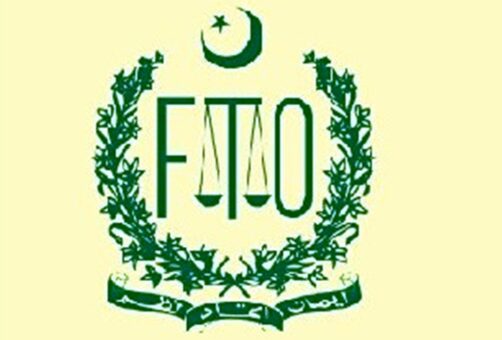Federal Tax Ombudsman (FTO) has issued instructions regarding salary taxation for temporary / adhoc employees and directed employers and tax authorities to deduct tax of such employees under Section 149 of Income Tax Ordinance, 2001.
In an informal resolution of disputes reported in the cases of teachers of Bahauddin Zakariya University (BZU), the FTO directed employers and offices of the Federal Board of Revenue (FBR) to ensure that tax shall be deducted on those low paid employees working on temporary / adhoc under Section 149, as has been ordained by the President of Pakistan in order dated August 15, 2022 in similar cases of teaching community.
READ MORE: Peshawar customs intelligence auctions motor vehicles on Feb 07
The FTO examined the alleged departmental practice to subject the remuneration of law paid adhoc / temporary employees in the light of relevant legal provisions i.e. Section 12 and Section 149 of Income Tax Ordinance, 2001.
Following is the text of Section 12 and Section 149:
Section 12. Salary – (2) Salary means any amount received by an employee from any employment, whether of a revenue or capital nature, including
(a) any pay, wages or other remuneration provided to an employee, including leave pay, payment in lieu of leave, overtime payment, bonus, commission, fees, gratuity or work condition supplements (such as for unpleasant of dangerous working conditions).
Section 149. Salary – (1) Every person responsible for paying salary to an employee shall, at the time of payment, deduct tax from the amount paid at the employee’s average rate of tax computed at the rates specified in Division I Part I of the First Schedule on the estimated income of the employee chargeable under the head ‘salary’.
READ MORE: IRS officers directed to provide declaration of avoiding private consultancy
The FTO observed that the legal provisions govern ‘salary taxation’ Section 12 and withholding tax thereupon under Section 149 of the Ordinance only the equation of employer-employee based on ‘Master Servant Relationship’ is material.
“This criterion forms the basic parameter for any employment. Regular/Adhoc/Temporary/Hired/Daily Wages which are different shares and forms of employment and law doesn’t create any distinction among all the above forms.”
READ MORE: FBR shuffles 60 customs officers in latest transfers, postings
It is observed that the decisions attracted attention of identical stakeholders and some of the employees engaged in teaching on part time basis as visiting faculty members in BZU, Multan approached the FTO and claimed that they are also entitled to benefit from these decisions because they meet the criteria of being low paid employees working with any organization and are being subject to monetary hardship through deductions at 10 – 20 per cent as source in terms of Section 153(2)(b) of the Ordinance.
“It is anomaly that regular employees earning salary up to Rs600,000 per annum pay no tax whereas they are taxed heavily.”
The FTO observed that the teachers approached the office had fully met the criteria of being low paid employees working on temporary/adhoc basis having a relationship of an employee with institution in terms of Section 12 of the Ordinance and their aggregate remuneration received per annum from this profession are below the tax exempt threshold of Rs600,000 for salary income.
READ MORE: Pass Track launched for currency declaration at Pakistani airports
“Petitioners’ cases, when compared with the regular faculty members of the institution in question, the deductions being made from regular faculty vis-à-vis the petitioners there is a visible incidence of discrimination despite the fact that nature of job remains the same in both categories. Persons falling in the former category are getting more but paying less taxes under section 149 of the Ordinance, whereas the later category is subject to higher tax deduction (at 10-20 per cent) in terms of Section 153(1)(b) of the Ordinance.
The FTO recommended that the Chief Commissioner Inland Revenue of Regional Tax Office (RTO), Multan should ensure that tax shall be deducted on these low paid employees working on temporary / adhoc under Section 149, as has been ordained by the President of Pakistan through an order dated August 15, 2022 in similar cases of teaching community.
Furthermore, the FTO also directed the treasure BZU Multan to ensure that from now onwards tax withholding on the payments made to these temporary / visiting faculty teachers are subjected to Section 149 of the Ordinance in future.
